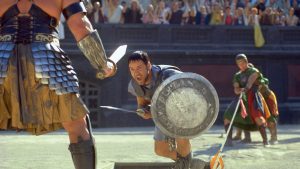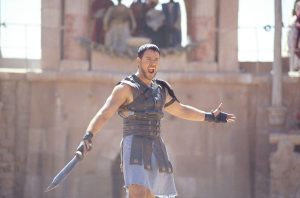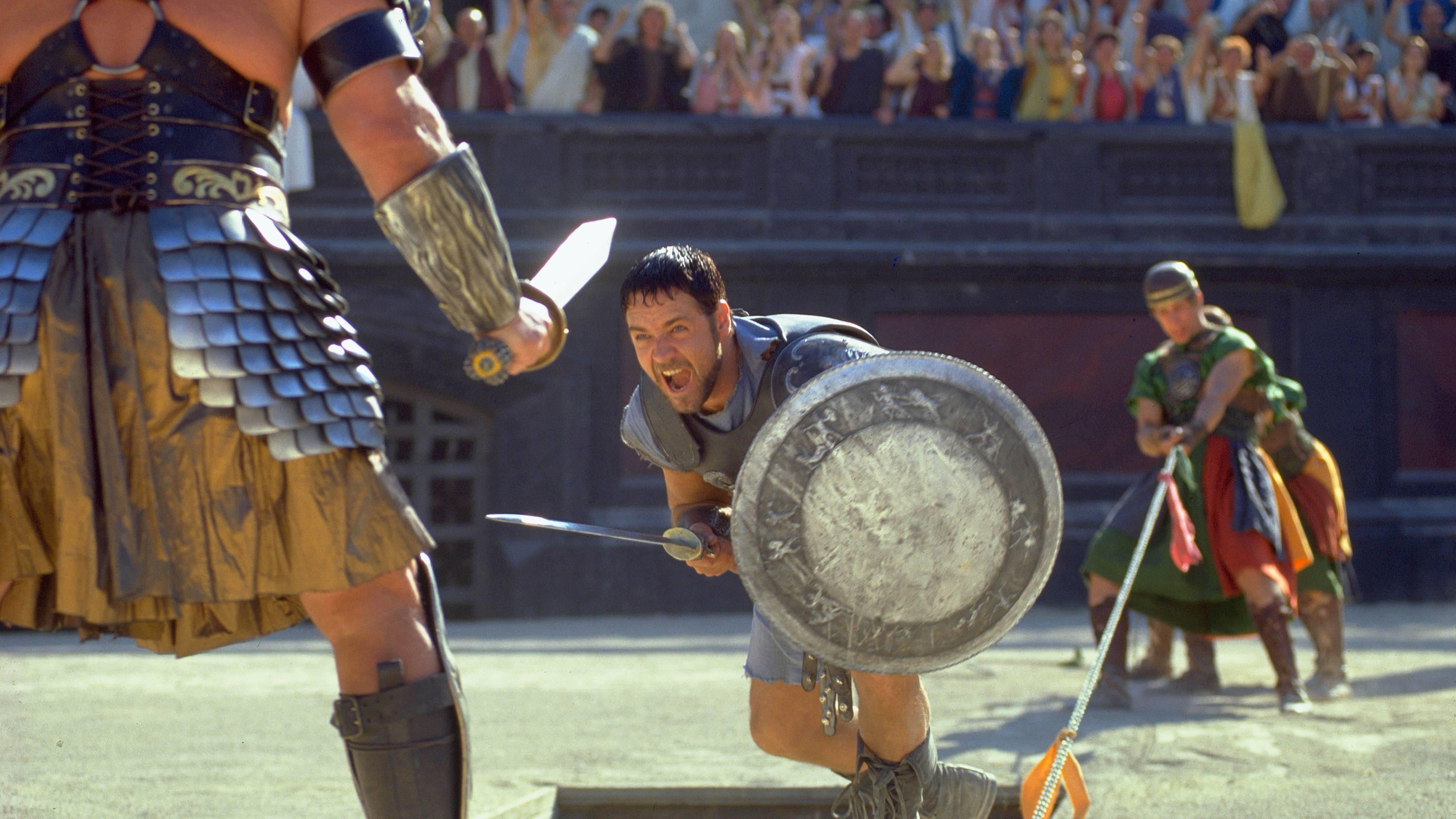Gladiator (2000)

Gladiator (2000), directed by Ridley Scott, is an epic historical drama that revitalized the sword-and-sandal genre and became a major critical and commercial success. Known for its grand scale, compelling story, and strong performances, the film remains a significant work in the action and historical drama genres. Here’s a detailed review of this influential film:
Plot and Characters
Gladiator follows Maximus Decimus Meridius (Russell Crowe), a loyal Roman general who is betrayed and left for dead after the assassination of Emperor Marcus Aurelius. Sold into slavery and forced to become a gladiator, Maximus seeks revenge against Commodus (Joaquin Phoenix), the corrupt new emperor who killed his family and seized the throne.
- Maximus Decimus Meridius: Russell Crowe delivers a powerful performance as Maximus, embodying the character’s strength, honor, and emotional depth. Crowe’s portrayal of the vengeful general turned gladiator is both heroic and relatable, grounding the film’s epic scale with personal stakes.
- Commodus: Joaquin Phoenix plays Commodus, the ambitious and cruel new emperor. Phoenix’s performance adds complexity to the villainous role, portraying Commodus as both charismatic and deeply flawed. His portrayal is integral to the film’s conflict and drama.
- Lucilla: Connie Nielsen portrays Lucilla, Commodus’ sister and Maximus’ former love interest. Her character adds a layer of political intrigue and emotional tension to the story.
- Proximo: Oliver Reed plays Proximo, the seasoned gladiator who becomes Maximus’ mentor and ally. Reed’s performance is both gruff and engaging, providing a touch of mentorship and camaraderie to Maximus’ journey.

Performances
- Russell Crowe gives an exceptional performance as Maximus, capturing the character’s physical prowess and emotional depth. His portrayal is central to the film’s success, making Maximus a memorable and heroic figure.
- Joaquin Phoenix provides a compelling and multifaceted performance as Commodus, balancing charm with menace to create a memorable antagonist.
- Connie Nielsen and Oliver Reed deliver strong performances that enhance the film’s narrative and emotional impact. Their characters add depth and complexity to the story.

Direction and Writing
Ridley Scott’s direction is both grand and meticulous, creating a sweeping and immersive portrayal of ancient Rome. His use of practical effects, elaborate sets, and detailed costuming brings historical accuracy and grandeur to the film.
The screenplay, written by David Franzoni, John Logan, and William Nicholson, combines historical drama with personal storytelling. The script effectively blends epic battles with intimate moments, creating a compelling narrative that balances action with emotional depth.
Cinematography and Visual Effects
- Joaquin Phoenix’s performance is a standout, bringing a depth of character to the role of Commodus. His portrayal adds a layer of complexity to the film’s central conflict.
- Dariusz Wolski’s cinematography is visually stunning, capturing the grandeur of the Roman Empire and the intensity of the gladiatorial combat. The film’s use of color, lighting, and camera angles enhances its epic scope and dramatic impact.
- Visual effects and practical effects are used effectively to create the film’s impressive battle scenes and set pieces. The combination of CGI and practical effects adds to the film’s realism and spectacle.

Score and Soundtrack
- Hans Zimmer and Lisa Gerrard provide a powerful and evocative score that complements the film’s epic and emotional moments. The music enhances the film’s dramatic and action sequences, contributing to its overall impact.
Themes and Impact
Gladiator explores themes of revenge, honor, and redemption. It delves into the personal and political struggles of its characters, presenting a story of one man’s quest for justice and his fight against tyranny.
The film’s impact on the genre is significant, revitalizing interest in historical epics and influencing subsequent films with its blend of grand scale and personal storytelling. Its success also led to a resurgence of interest in Roman and ancient history in popular culture.
Reception
Gladiator was a critical and commercial success, winning five Academy Awards, including Best Picture, Best Director for Ridley Scott, Best Actor for Russell Crowe, Best Visual Effects, and Best Costume Design. It was praised for its strong performances, impressive visuals, and gripping narrative.
In summary, Gladiator is a visually stunning and emotionally compelling film that combines exceptional direction, strong performances, and a powerful narrative to create a memorable cinematic experience. Its influence on the historical epic genre and its enduring popularity highlight its significance as a modern classic.











